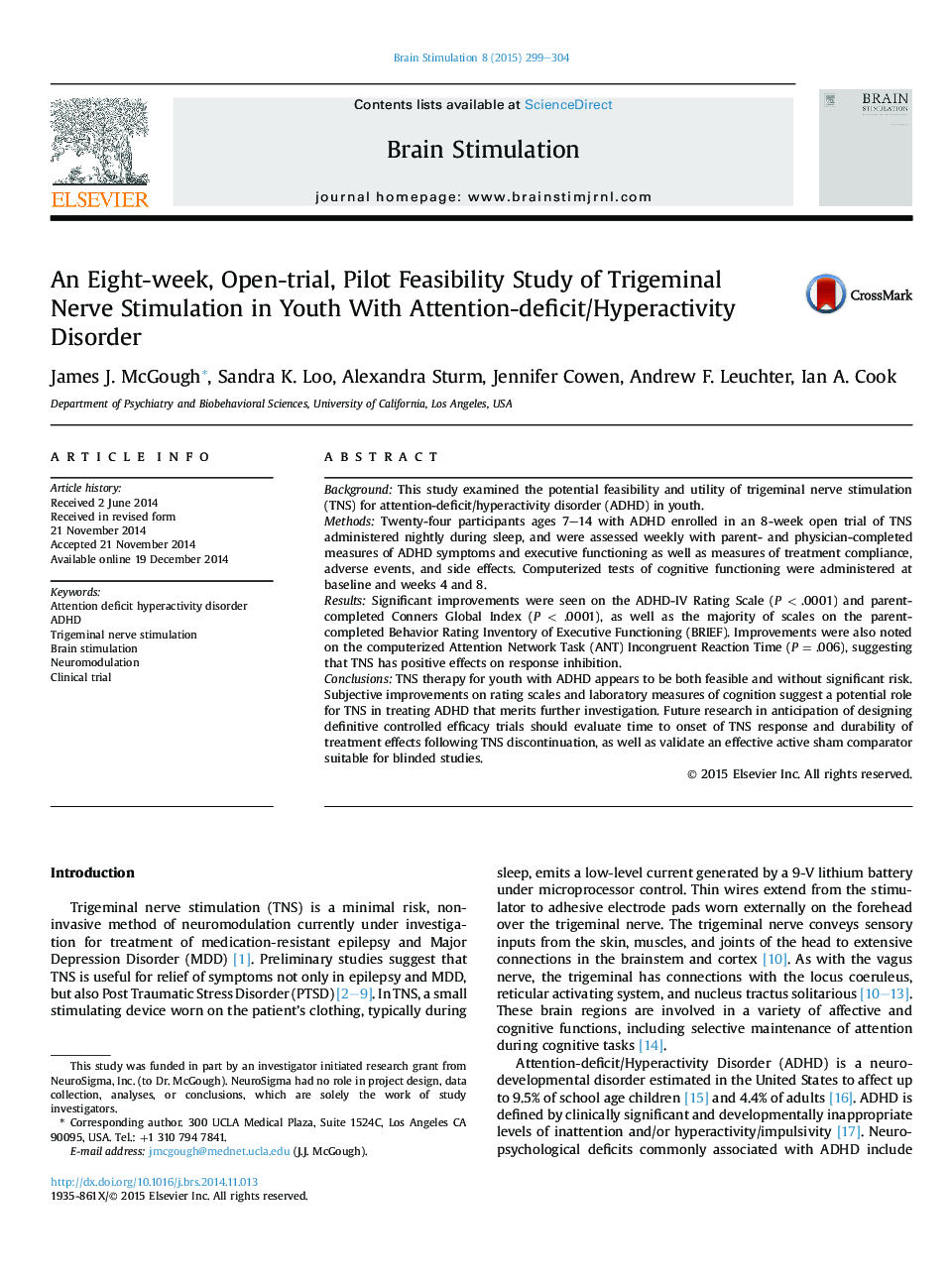| کد مقاله | کد نشریه | سال انتشار | مقاله انگلیسی | نسخه تمام متن |
|---|---|---|---|---|
| 6006052 | 1184674 | 2015 | 6 صفحه PDF | دانلود رایگان |
- First study to use Trigeminal Nerve Stimulation (TNS) in children and adolescents.
- Pilot project demonstrated the feasibility of TNS research in youth with ADHD.
- TNS treatment was associated with improvements in ADHD, cognition, mood, and sleep.
- TNS appeared to engage neural circuits involved in executive functioning.
- TNS was well tolerated with no clinically meaningful adverse events.
BackgroundThis study examined the potential feasibility and utility of trigeminal nerve stimulation (TNS) for attention-deficit/hyperactivity disorder (ADHD) in youth.MethodsTwenty-four participants ages 7-14 with ADHD enrolled in an 8-week open trial of TNS administered nightly during sleep, and were assessed weekly with parent- and physician-completed measures of ADHD symptoms and executive functioning as well as measures of treatment compliance, adverse events, and side effects. Computerized tests of cognitive functioning were administered at baseline and weeks 4 and 8.ResultsSignificant improvements were seen on the ADHD-IV Rating Scale (P < .0001) and parent-completed Conners Global Index (P < .0001), as well as the majority of scales on the parent-completed Behavior Rating Inventory of Executive Functioning (BRIEF). Improvements were also noted on the computerized Attention Network Task (ANT) Incongruent Reaction Time (P = .006), suggesting that TNS has positive effects on response inhibition.ConclusionsTNS therapy for youth with ADHD appears to be both feasible and without significant risk. Subjective improvements on rating scales and laboratory measures of cognition suggest a potential role for TNS in treating ADHD that merits further investigation. Future research in anticipation of designing definitive controlled efficacy trials should evaluate time to onset of TNS response and durability of treatment effects following TNS discontinuation, as well as validate an effective active sham comparator suitable for blinded studies.
Journal: Brain Stimulation - Volume 8, Issue 2, MarchâApril 2015, Pages 299-304
